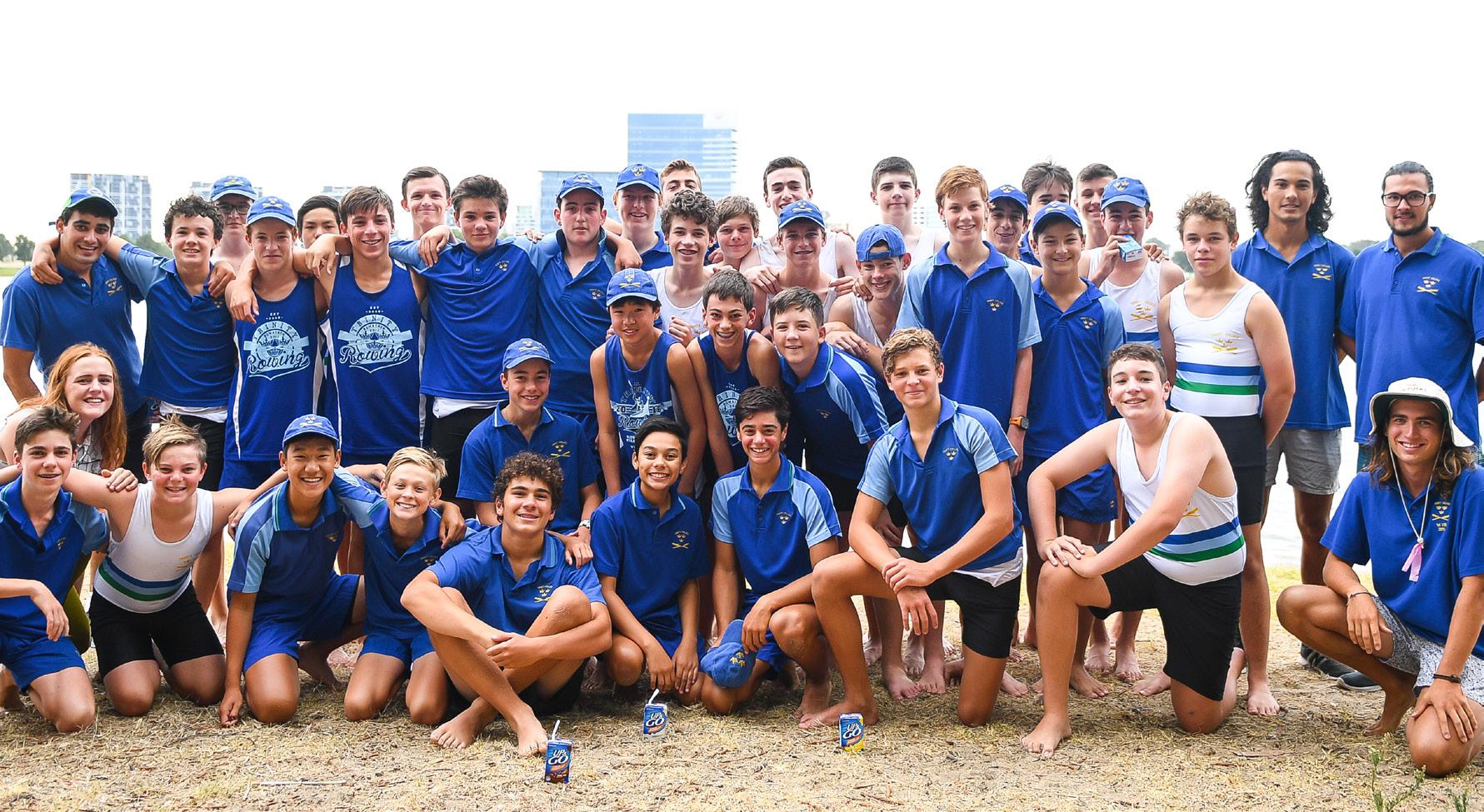
4 minute read
Religious Education
CHRISTIAN SERVICE
Fr Gustavo Gutiérrez, a Peruvian theologian and Dominican priest, who is one of the principal founders of Liberation Theology said: “So you say you love the poor? Name them!”
At the heart of the Christian Service program at Trinity College is the basic understanding that in order to serve others, we must build relationships with them. It is not enough to visit the elderly, to help little children with reading, to serve soup to the homeless; because they need our help. Truly transformative experiences require coming to know and love others for who they are and through knowing them, changing our view of the world and our response to situations that confront them, especially those who are left out or struggling to cope.
In Year 7, ‘Serving to Belong’ immerses students in the environment of the Swan River, our backyard and engages them in activities which make connections between the river life and ourselves. Caring for our Mother Earth is integral to our faith in a God who created the universe for humanity to nurture and enjoy. A prayer written by one Year 7 student expresses this beautifully: “Thank you for our environment. Thank you for our Swan River. For the small, tiny frogs and tadpoles. For the small schools of fish swimming, For the jelly fish that swim around. For the big fish that provide us with food. For the big animals like dolphins and bull sharks. For the birds that fly around. Thank you, God, for the trees around the river. For the reeds that surround. For the grass we sit and play on. Thank you, God for our Environment. Our Swan River.”
In Year 8, ‘Our Neighbour’ is centred on building relationships within students’ families and neighbourhood. In the places that are most familiar to them, students learn that through helping with everyday tasks, they become a valuable member of a community who can respond to the needs of others on a daily basis.
Jamaan Peters’ (8.1) reflections on preparing a meal for his family illustrates this well: “My dad, who normally cooks, was tired so I decided to prepare dinner. It was enjoyable, even though I found it difficult to cook multiple things, but dad gave me good advice. It made me appreciate that my parents cook for the family most nights and I learnt to respect them more for their efforts. When Jesus saw that someone needed assistance he would always help without thinking twice.”
Stephen Franse (8.3) wrote about his involvement in the Trinity College Environmental Committee (TCEC): “By being a part of TCEC, I help the Trinity College community to focus on environmental issues. I learnt to interact and work cooperatively in a group to solve environmental problems around the School. Jesus gathered with his community to make it a better place for all to live in and he had great respect for all living things.”
Mrs Marya Stewart
Looking after his baby brother was quite a challenge for Cameron Lobo (8.5): “I helped my mum, who really needed to get some things done, by caring for my baby brother. I enjoy spending quality time with him and I usually give him a hug and a kiss after school and then go about my normal routine. He needed to have his bottle and started crying. Mum told me what to do and I gave it to him but it wasn’t as easy as it looks. It made me realise how hard my mum’s day is. I found babysitting very stressful. I can only imagine what it’s like for my mum doing this 24-hours a day, 365 days of the year. It doesn’t matter how hard my day may get, this experience gave me something to think about when I’m finding things difficult: how my mum is managing her day caring for my brother. Babies are certainly hard work!”
Year 9, ‘Restoring Relationships’ continues to be a highlight for students as they spend the first two periods of a day helping out at a local primary school. The relationships that develop over three weeks are evident when I introduce a new group of students to a class and one of the class asks whether a previous visiting Trinity boy will be coming back. Often when I return to collect the boys to take them back to Trinity, they are so absorbed with the younger students, they don’t notice me coming in the door and then when I can drag them away, the class thanks them beautifully, finishing with “and may God bless you”. The bus ride back to Trinity is always alive with stories of the experiences they have had working with the primary aged children.
Working with the elderly is probably the most rewarding experience that a young person can have; however, it is also requires stepping right out of their comfort zone. For Year 10 students, ‘Experience Counts’ presents many challenges and results in surprising insights: Michael Boffey (10.3) spent his time playing lawn bowls with a group of elderly residents. “Playing lawn bowls with the ladies and having a laugh with them was really enjoyable. One lady spent quite a bit of time sharing her life story with me, which I felt privileged to hear. On reflection, I realise that at the beginning of our visits I had been quite self-centred and now I am very grateful for the experience.”
Having a game of pool with “three awesome good pool players” changed Michael Tassone’s (10.5) attitude to the experience. “In the beginning I wasn’t too excited about it but now my perspective has changed, because it was completely different to what I had expected.”










